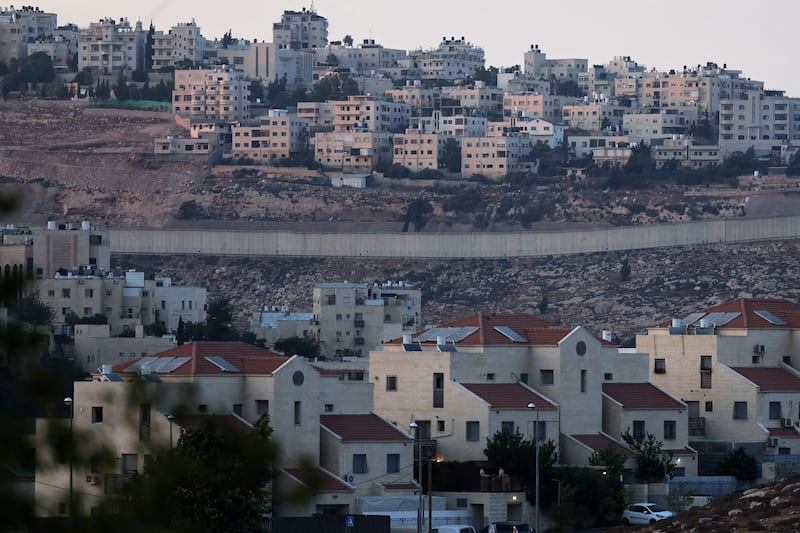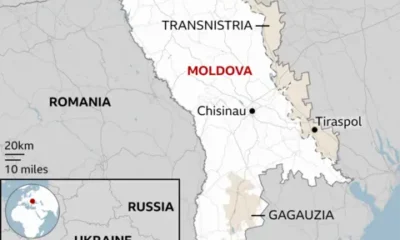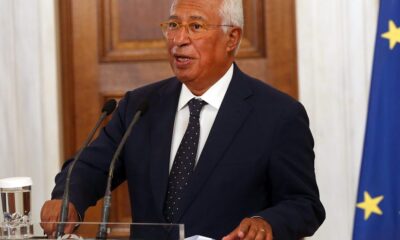While Palestinians in the occupied territories live under effective military rule, over 700,000 settlers enjoy full citizenship rights
Opinion
Vincent Durac: Israel is inching closer to a single apartheid-style state. Can international pressure stop it?

Read more on post.
The recognition last week of a Palestinian State by the United Kingdom, France, Canada and an array of other countries has prompted debate on the practical significance, if any, of this step.
For some, such as Israeli columnist Gideon Levy, writing in Haaretz, an Israeli newspaper, it is no more than an erroneous substitute for boycotts and other punitive measures that should be taken against a state committing genocide. Others argue that recognition will help Palestinians make a stronger case for a ceasefire within existing international diplomatic and legal structures.
What is clear is that recognition of a Palestinian state will mean nothing in terms of the realities of Gaza (and the West Bank) in the absence of some very significant shift in the underlying dynamics that are maintaining the present catastrophic situation. There appears to be little hope of this at present.
In particular, the key external actor, the United States, shows no sign of any alteration in its position of largely unconditional political and material support for the Israeli onslaught on Gaza. In telling the United Nations General Assembly that recognition amounted to rewarding Hamas, US president Donald Trump was simply echoing one of Israeli prime minister Binyamin Netanyahu’s talking points.
As for Europe, beyond the belated inclusion of France, the UK and others in the ranks of those that recognise Palestine, there is little by way of concerted action that would place meaningful pressure on Netanyahu and the Israeli government. Without doubt, the European Union has leverage in relation to Israel. However, it lacks the political will to utilise this.
The EU is Israel’s biggest trading partner, accounting for 34 per cent of Israel’s worldwide trade in goods in 2024, while 28.8 per cent of its exports went to the EU.
Earlier this month, Ursula von der Leyen, president of the European Commission warned Israel that man-made famine “can never be a weapon of war” and committed to taking action, without specifying exactly what form this might take. Subsequently, the Commission has proposed ending a free trade deal that removed tariffs on imports of billions of euro worth of goods between Europe and Israel.
The net effect of this would be just €227 million a year, according to EU trade commissioner, Maroš Šefčovič. In any case, even this modest measure is unlikely to secure the necessary support from member states, with Germany and Italy, in particular, almost certain to oppose even the most modest sanctions on Israel.
The inability of the EU to act was made utterly clear earlier this year when an even more modest Commission proposal to exclude Israel from access to the EU’s €95 billion Horizon Europe research fund failed to secure the necessary qualified majority support. Both Germany and Italy stated that further scrutiny of the proposal was needed before any decision could be made.
In Israel, there have been repeated calls for annexation of the West Bank in retaliation for recognition of Palestine by European states. Unsurprisingly, these have been voiced by the far-right minister for national security, Itamar Ben Gvir and finance minister, Bezalel Smotrich, while other ministers in Netanyahu’s government have also supported such a move.
Indeed, earlier, in July of this year, the Israeli Knesset approved a non-binding motion in favour of annexation. Such a move would almost certainly lead to the collapse of the 2020 Abraham Accords which saw the normalisation of relations between Israel and a number of Arab states, including the United Arab Emirates, and which is touted as the major foreign policy achievement of the first Trump administration.
The Accords were a response to an earlier threat on the part of Israel to annex the West Bank. The UAE has warned Israel that to do so now would cross a “red line”, while Trump, in a meeting with Arab and Muslim leaders earlier this week is reported to have given assurances that he will not “allow” Netanyahu to do so.
However, whether formal annexation is undertaken or not, the reality on the ground in the West Bank is of creeping annexation that has been going on for years, and which has rendered the option of a two-state solution to the Palestinian-Israeli conflict effectively unviable. Successive Israeli governments have, for decades, pursued policies of settlement expansion in the West Bank and East Jerusalem.
According to Israel’s Central Bureau of Statistics, there were just over 450,000 Jewish settlers living in West Bank settlements in January 2020. Today, that number is in excess of half a million, excluding East Jerusalem, where there are an additional 200,000.
Earlier this year, the Israeli government’s subcommittee on Settlement Affairs, chaired by Smotrich, approved a plan for construction of 3,400 settlement units in the West Bank which would link a major existing settlement, Ma’ale Adumim, to Jerusalem, and effectively sever the northern part of Palestine from the south, rendering impossible the creation of a geographically contiguous Palestinian state in the future.
On September 2nd, at a Cabinet meeting convened to examine a response to increased international moves towards recognition of Palestine, Smotrich unveiled a proposal for annexation of 82 per cent of the West Bank, based on detailed maps drawn up by the “Settlement Directorate” of the Ministry of Defence.
In pursuing a policy of creating “facts on the ground” which will preclude the possibility of a Palestinian state, the Israeli government is ensuring that the two-state solution is no longer a real option. What that leaves, by way of alternative, is a single state, in which Palestinians do not enjoy the democratic rights and privileges of their Jewish Israeli neighbours.
Already, 350,000 Palestinians live in annexed territory in East Jerusalem, almost all of whom have fewer rights and legal protections than their Israeli neighbours. And while Palestinians in the occupied territories live under effective military rule, over 700,000 settlers enjoy full citizenship rights, even though they live outside the internationally recognised borders of Israel.
In July of last year, the International Court of Justice characterised the treatment of Palestinians in the occupied territories as “systemic discrimination, based on, inter alia, race, religion or ethnic origin”, coming close to the term “apartheid” which is used by human rights organisations, including Human Rights Watch and Amnesty International, as well as the leading Israeli human rights organisation, B’Tselem.
The deepening of the Israeli annexation project in the West Bank will only accelerate movement towards a single apartheid-style state. This, in turn, might finally bring meaningful international pressure on Israel to change direction. But as the destruction of Gaza continues, the cost for Palestinians in the interim is incalculable.
Dr Vincent Durac lectures in Middle East politics in the UCD school of politics and international relations











